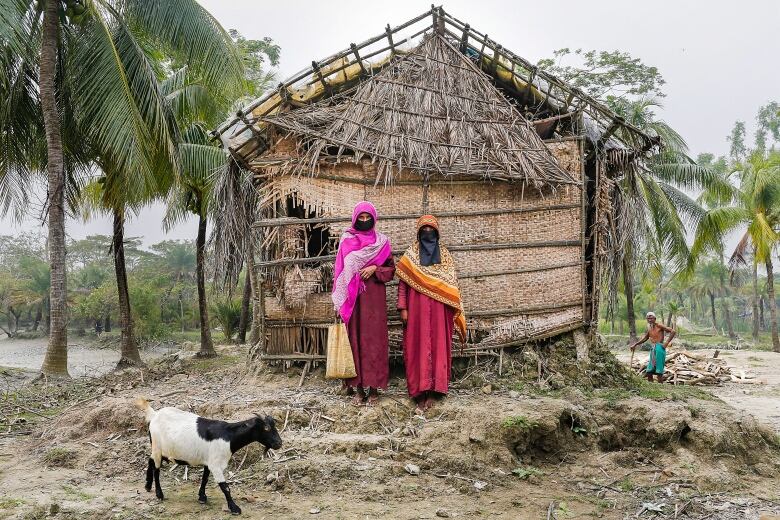Climate refugees flee their homes as water levels rise

As the climate talks grind on through their final week in Paris, the fate of many, many potential climate refugees may hang in the balance.
It's a Ripple Effect of climate change, that in low-lying countries such as Bangladesh... and island nations such as Fiji, rising sea levels from global warming threaten to wipe out not just homes, but entire homelands.

And today, as part of our season-long project Ripple Effect, we're learning more about the environmental forces displacing so many people, and the Ripple Effect their movement will have for the rest of the globe.
Michael Nash is a filmmaker and the director of the documentary, "Climate Refugees," and he was in Los Angeles.
Fiji is a nation made up of more than 300 islands in the Pacific Ocean, many of which rise only a few metres above sea level, meaning they are especially vulnerable.
Fenton Lutunatabua is in Fiji. He's the Pacific Communications Coordinator for the Environmental advocacy group 350.org. He says that rising sea levels are forcing people in some Pacific island nations to plan for the worst.
President Tong, in Kiribati, has this program called Migration With Dignity, where in anticipation of [sea level rise] he's preparing his people. So right now they're looking at developing young people, educating them better, so when and if they had to move, they would be able to go over to another country not as second class citizens, but as people that would be able to contribute to that country's economy.- Fenton Lutunatabua of 350.org, an environmental advocacy group

No matter the outcome at the Paris climate talks happening now, the forces driving climate change won't be stopped dead in their tracks, and the world will inevitably be facing more climate migrants in the years to come.
Walter Kaelin is working to rally international attention to their plight. He is Envoy of the Chairmanship of the Nansen Initiative, which works to protect people displaced by disasters and the effects of climate change. He was in Paris earlier to speak at the Climate Conference. We reached him in Bern, Switzerland.

Of course, any mass migration has ripple effects of its own — including global security. Simon Dalby is the CIGI Chair in the political economy of climate change at Wilfrid Laurier University, and he's the author of "Security and Environmental Change." We reached Simon Dalby in Waterloo, Ontario.
Correction: An earlier version of this article incorrectly said that Fenton Lutunatabua had said damage and utter chaos caused by climate change was forcing Fijians to prepare for the worst. This was a misinterpretation of his words. When he used the phrase "utter chaos" he was describing a specific event in Kiribati, not Fiji. The Current regrets the error.
This segment was produced by The Current's Julian Uzielli and Catherine Kalbfleisch.